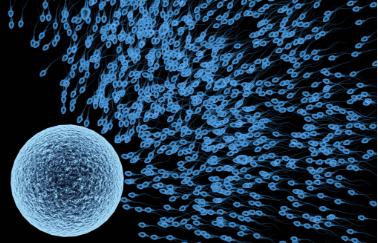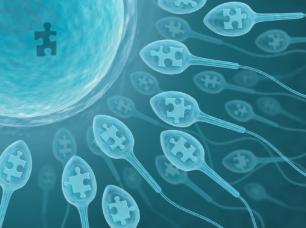How Can Epididymitis Harm Sperm?
Date:2021-08-16 click:0
Epididymitis is a disease of the reproductive system, and it is generally seen in young adults. The condition can cause painful testis or affect testis blood supply, leading to the possibility of ischemia of the testis, resulting in testicular atrophy, even infertility, abnormal semen quality, or immature sperm.Epididymitis mostly occurs in lower urinary tract infections, mainly caused by Staphylococcus and Streptococcus. The main symptoms are discomfort due to swelling of the ipsilateral scrotum, severe local pain, which affects sperm movement. The pain can radiate to the ipsilateral groin area and lower abdomen, accompanied by general malaise and fever. The examination shows that the ipsilateral epididymis is enlarged and tender. The semen test may be abnormal.
Because epididymitis is a disease that occurs in male genitalia, the direct impact on men is that it will affect the quality of male sperm. What are the harms caused by epididymitis to male sperm?

1. Blocking the channel of sperm:
Suppose epididymitis is caused by pathogen infections such as Neisseria gonorrhoeae and Mycobacterium tuberculosis. In that case, it will cause inflammation and damage to sperm and easily cause shrinkage or blockage of the epididymal lumen, leading to incomplete or complete vas deferens obstruction near the epididymal end. It is an irreversible sequela of epididymitis. Sperm is blocked in the epididymal tube and cannot go out. It can only be slowly trapped to death or allowed to be slaughtered, resulting in obstructive oligospermia or azoospermia.
2. Trapped sperm:
Epididymitis is also one of the fundamental reasons for the formation of anti-sperm antibodies in men. When the epididymis is inflamed, immune cells and humoral immune substances enter the inflamed epididymal duct to form antibodies against the pathogen. At the same time, the ability of immune cells to recognize the body's tissues is significantly reduced. It directly reacts with antigens on the surface of sperm or seminal plasma to form anti-sperm antibodies.
After the anti-sperm antibody is formed, it is mixed in the semen or surrounded by the sperm mass, or firmly adsorbed on the surface of the sperm. As a result, the motility of sperm is significantly reduced or condensed into clumps, affecting the forward movement of sperm.
At the same time, antibodies can also enter the blood circulation and have a broader range of adverse effects on the function of the reproductive organs. Suppose the immune response generated by anti-sperm antibodies acts on the testicular tissue. In that case, it can form a special destructive effect, causing abnormal spermatogenesis of the testis, resulting in spermatogenic azoospermia.

3. Cut off the sperm supply:
Suppose the epididymis is infected with pathogenic microorganisms, causing inflammation. In that case, it will cause lumen congestion and edema, and its ability to raise sperm will naturally decrease, even in a state of sabotage.
The various nutritional sperm substances secreted by the epididymis will be significantly reduced. The different abilities that the sperm should obtain in the epididymis will be weakened considerably, leading to a significant increase in the rate of immobile sperm or dead sperm in the excreted semen. Even motile sperm its motility is also depleted, which leads to asthenospermia or azoospermia.
4. Reduce sperm motility:
After pathogens infect the epididymis, some pathogens such as Escherichia coli can directly damage the sperm in the epididymal tube, inhibit sperm motility or allow sperm to agglutinate, which will reduce its motility. Some pathogens, such as mycoplasma and chlamydia, will be adsorbed on the surface of sperm, resulting in reduced or even loss of motility.
A large number of metabolites produced by inflammation can also poison sperm or change the living environment of sperm, resulting in decreased sperm motility and increased dead sperm, increasing the rate of abnormal sperm and a decrease in sperm count.
The impact of epididymitis on male sperm is significant because it may cause the symptoms of male infertility, which has a substantial effect on a family, so the majority of males must care for this disease. Clinically, it is recommended to use drug treatment, as it has a low recurrence rate. Herbal medicine Diuretic and Anti-inflammatory Pill is made from herbs and has no drug resistance or side effects. It has been proved to be a very suitable product for the treatment of epididymitis, a pure Chinese medicine that can effectively help patients with bacterial and viral infections.
You may also be interested in:



